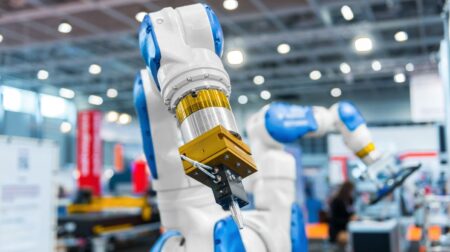The UK’s Department for Work and Pensions (DWP) is trialling the use of AI technology to match jobseekers with work in areas of England and Scotland, which have the highest ratio of vacancies to unemployed jobseekers.
AI-powered software will be trialled in 20 Jobcentres from March, as part of the government’s Way to Work strategy. The automated system is designed to connect people with local roles, including training routes or jobs they haven’t previously considered.
The DWP said anyone on Universal Credit who refuses to use the new matchmaking system would not be sanctioned, ensuring the trial is a ‘jobs Robocop’ than a ‘benefits Terminator’.
It explained that AI software is being brought in to help connect people to their next job or training opportunity, and is backed by £1.3m government investment. People looking for work – at any age or stage – will be asked a series of questions about themselves and employment history in order to build an online job-seeking profile.
Building on this information, the AI-powered system will then make suggestions based on live local jobs market data. Using specialist algorithms, the AI service will recommend next steps, which could point jobseekers to a live vacancy or a local skills bootcamp to help unlock other careers and training opportunities.
“By helping jobseekers quickly find the right route for them, the AI solution could also support struggling employers fill gaps and boost local economies,” the DWP said.
“We will not make taking part in this test mandatory for anyone. Universal Credit claimants would not be at risk of a sanction if they didn’t believe a service would be useful to them or decided not to use it for another reason.”
The government is partnering with three firms specialising in job-matching AI to deliver this trial – FutureFitAI, Bayes Impact, and UK jobs board Adzuna.
Bayes Impact will supply its AI career coach Bob, which provides personalised action plans for jobseekers to overcome barriers it identifies, for the trial. During the pilot, the company will use “additional labour market information to allow people to identify jobs in their area that are sustainable and future proof”.








